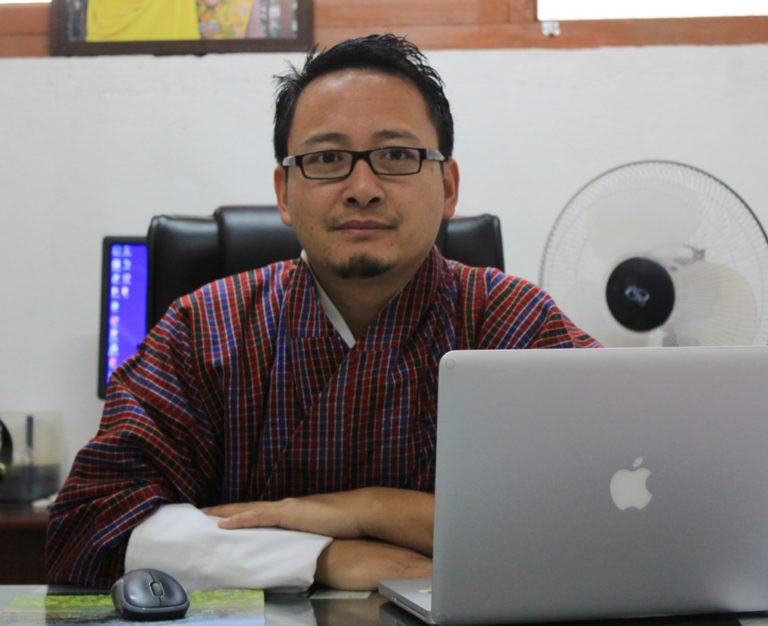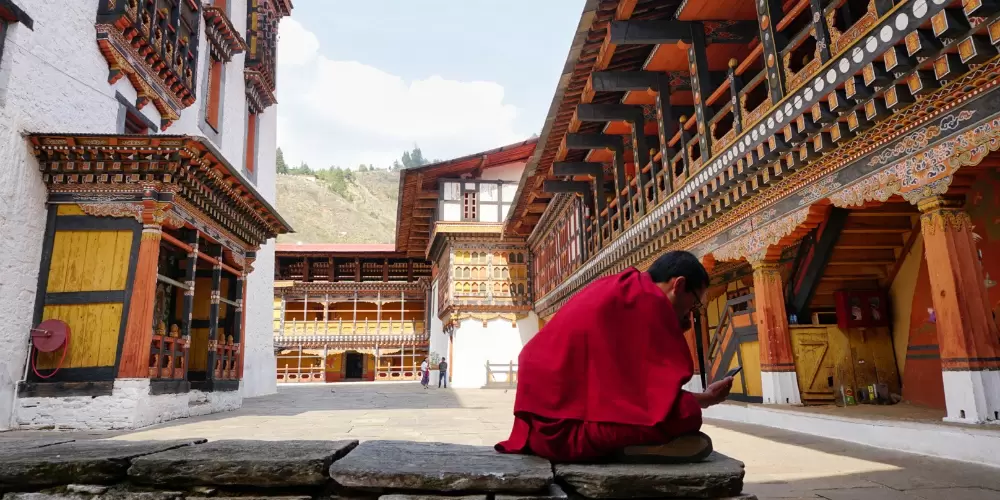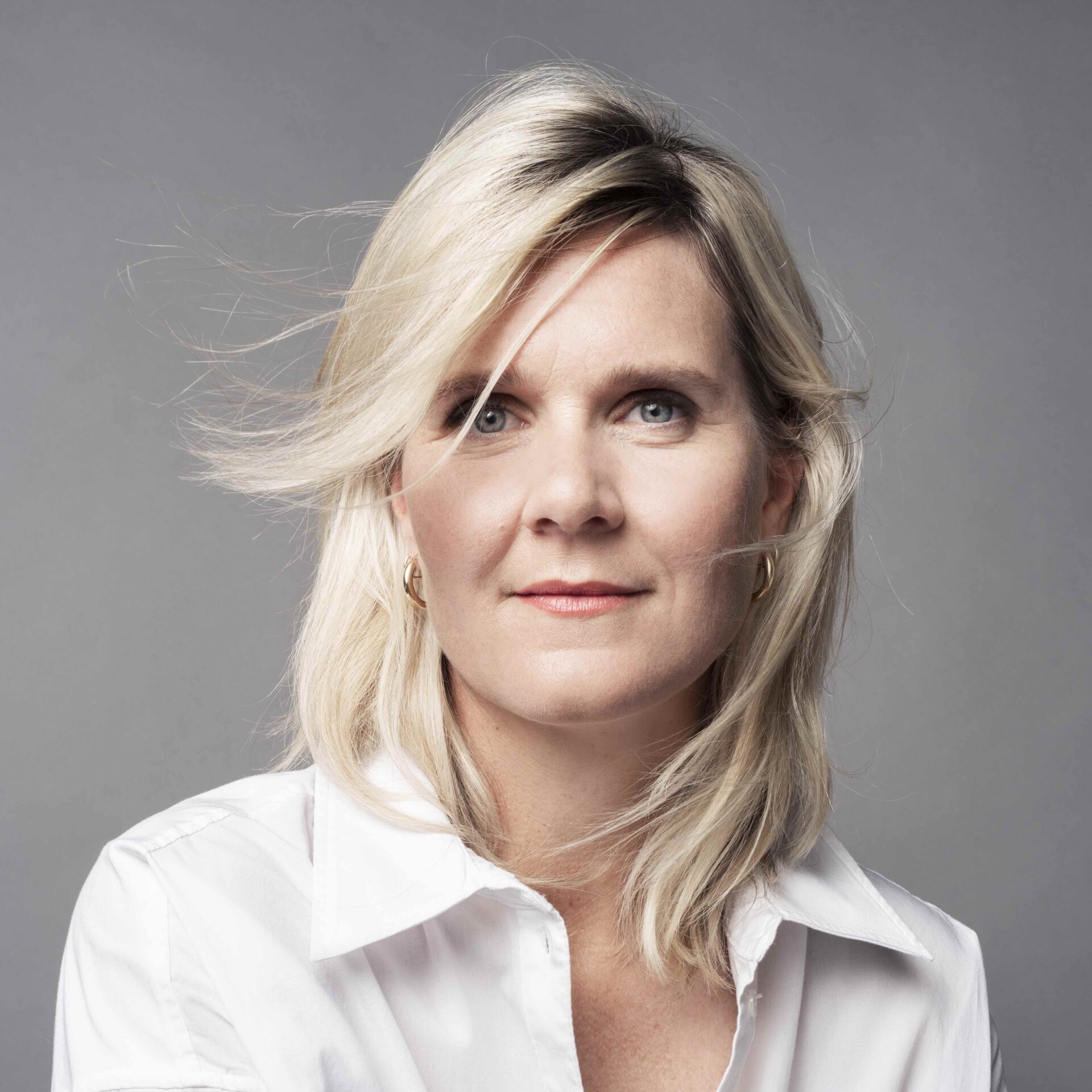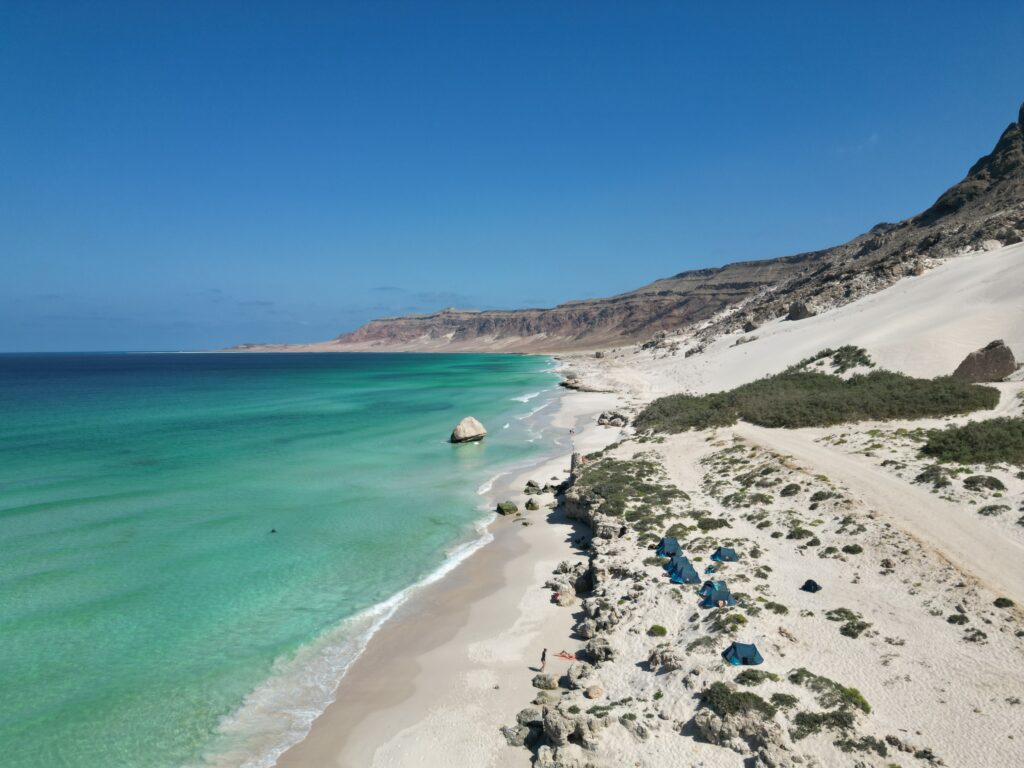A meeting with Damcho Rinzin about tourism, national happiness and choices with impact
At a time when many destinations are struggling to find the right balance between growth and sustainability, Bhutan has opted for a radical but well-considered course. Not more tourists, but the right tourists. Not revenue as a goal, but well-being as a guiding principle. The small Himalayan country bases its tourism policy on deeply rooted values and demonstrates how sustainable tourism marketing works in practice.
What can city and destination marketers learn from this? The answer lies in the choices Bhutan makes. Choices based on values, vision and consistent policy.
A destination that touches your heart
In Bhutan, it seems like everyone is smiling. The people I met during my trip through this small kingdom deep in the Himalayas radiated a disarming calm and sincerity. It reminded me of my two-year-old son: open, curious, unhurried. My guide Ugyen and driver Jamyang not only ensured flawless logistics, but also gave me an insight into their daily lives, their dreams, families and values.
From the moment I set foot in Bhutan, I felt that I was becoming part of something that went beyond a tourist destination. The longer I stayed in the country, the more I began to rethink my own lifestyle and priorities. Bhutan confronts you with the question: what is really important?
The right travellers in the right way
It is therefore not surprising that this special atmosphere attracts exactly the kind of travellers that Bhutan likes to welcome. People who are looking for depth, reflection and meaning. No mass tourism, but consciously chosen visitors who fit in with the values of the country.
This conscious approach is no coincidence. Bhutan has carefully built up its tourism sector with a clear vision: preserving culture and nature, combined with economic development, but on its own terms. And it works. In 2020, Bhutan was named the absolute top destination by Lonely Planet. Not because it focuses on reach or fame, but because it knows exactly who it wants to be and for whom.
Tourism as an extension of national values
During my stay in Bhutan, I had the opportunity to speak with Damcho Rinzin, head of the Tourism Council of Bhutan (TCB). During our conversation, it became clear that tourism in Bhutan is not an end in itself, but an extension of national values. Tourism must contribute to the well-being of both residents and visitors.
According to Rinzin, policy is therefore aimed at offering travellers a valuable experience, while at the same time protecting the culture and distributing economic benefits fairly. Bhutan calls this principle “high value, low volume”: fewer tourists, but with more depth, attention and reciprocity.

This vision is rooted in a broader national philosophy: Gross National Happiness (GNH). This holistic approach to development focuses on well-being, meaning and harmony rather than economic growth as the sole starting point. GNH is deeply rooted in Buddhism, Bhutan’s national religion, and focuses on compassion, contentment and inner peace.
Former Prime Minister Tshering Tobgay once described this as the pursuit of balance between economic growth, social development, environmental conservation and cultural continuity within the framework of good governance. Tourism must contribute to this balance. That is why all policy decisions within the Tourism Council are assessed against the principles of GNH.
In order to put this vision into practice, the TCB is organised into four specialised departments:
- Promotion and branding, which positions Bhutan as a destination that matches its values;
- Quality, which oversees the services provided by tour guides, hotels and tour operators;
- Service, responsible for visas and financial procedures, among other things;
- Infrastructure, which provides facilities such as roads, walking routes and small-scale accommodation.
This structure makes it possible to build, with care and consistency, a tourist experience that is not only welcoming but also does justice to Bhutan’s identity. The result is an example of how policy, culture and experience come together in sustainable destination development.
Balance between development and conservation
Tourism can be a powerful driver of economic and social progress. Destination development offers opportunities for employment, infrastructure and quality of life, especially when it is locally rooted. But these benefits can only be fully realised if choices are made with a view to the long term.
Only when the interests of residents, nature and culture are central can a model emerge that works for everyone, both for the community and for visitors.
Many regions talk about sustainability and community-based tourism in their policy documents, but Bhutan truly lives by these principles. Many regions talk about sustainability and community-based tourism in their policy documents, concepts that are also central to the UNWTO’s sustainable tourism policy, but Bhutan truly lives by these principles. The country structurally prioritises the well-being of its inhabitants and the protection of natural resources over rapid growth. This is not a symbolic aspiration, but a concrete starting point for policy.
Bhutan is one of the ten most biodiverse regions in the world. Almost five million hectares of land are protected nature reserves, covered with primeval forests, lakes, rivers and a rich variety of wildlife. More than half of these areas are eligible for ecotourism development, provided that this is done within strict guidelines. Activities such as trekking and camping are only permitted on designated routes and always under the supervision of certified guides. This ensures that nature remains accessible but not vulnerable.
At the same time, the urban offering is growing, with new hotels, cafés and shops, but always within the framework of Bhutan’s core principle: high quality, low volume. This balance requires choices, and Bhutan has developed a remarkable instrument to achieve this: a mandatory daily levy for visitors. Tourists pay a minimum amount per day, ranging from 250 to almost 2,000 dollars for more luxurious trips. This threshold discourages mass tourism and attracts travellers who consciously choose meaningful experiences.
The system is transparent and effective. Anyone wishing to visit Bhutan must book through an accredited tour operator. The number of visitors per day is limited and actively monitored. The proceeds from the levy – the Sustainable Development Fee – go directly to public services such as education, healthcare and nature conservation.
This reciprocity is tangible. Upon arrival, my guide sincerely thanked me for my visit: my presence directly contributed to free healthcare and education in his community. Because the benefits of tourism are visible locally, there is strong support among the population. Residents feel involved, are proud of their role as hosts and see tourism not as a threat, but as a valuable exchange.
What Bhutan shows is that tourism does not have to be a source of tension between growth and protection. By making clear choices, setting frameworks and redistributing revenues fairly, a model is created that works. For now and for future generations.
Uniqueness as a strength in positioning
Bhutan’s tourism policy, which focuses on high quality and limited visitor numbers, is not just about preserving culture and nature. It is also a smart strategy to create a sense of exclusivity and authenticity.
This positioning fits seamlessly with the wishes of a select group of travellers: people who value peace, depth and unique experiences, often with higher spending power.
The Tourism Council of Bhutan consciously uses its own geographical and cultural characteristics in its positioning. The country is small, sparsely populated and relatively unspoilt. Moreover, Bhutan cherishes traditions, values and ways of life that seem at odds with the hectic pace of the Western world. Instead of glossing over these differences, they are emphasised as a distinctive strength. This uniqueness is not a limitation, but a brand promise.
Bhutan’s international reputation grew rapidly thanks to the publicity surrounding the Happiness Index. Although the index is controversial as a measuring instrument, the image it created of Bhutan as a peaceful, conscious and harmonious country is remarkably consistent and credible. This reputation is reinforced every day by the warm, sincere attitude of both residents and professionals in the tourism industry.
Whether everyone in Bhutan is actually happy is of little importance to visitors at that moment. What counts is the experience of genuine hospitality and positive energy. Bhutan understands better than anyone how powerful perception is and uses it convincingly.
Although the largest numbers of visitors still come from neighbouring India, interest from Europe, North America and Australia is growing. These international travellers are not reached through mass advertising, but through carefully built networks, partnerships with specialised travel organisations and word-of-mouth recommendations.
Bhutan’s success as a brand can be traced back to two fundamental marketing principles that are relevant to every marketer:
- Know your strengths. Understand your unique values, your core qualities, and dare to articulate them clearly.
- Know who you are there for. Focus on the target group that fits your identity and offer them something they cannot find anywhere else.
Bhutan proves that a distinct profile, rooted in values and supported by policy, can not only be sustainable, but also extremely attractive.
Personal experiences as the foundation for sustainable tourism marketing
What sets Bhutan apart from many other destinations is its emphasis on personal experiences. Travellers don’t just come for the scenery or the monasteries, but for a deeper, more human experience.
According to Damcho Rinzin, head of the Tourism Council of Bhutan, the ultimate goal is simple but powerful: ‘We want visitors to have a good time.’
This is achieved in large part through interaction between travellers and guides. In Bhutan, guides are not logistical facilitators, but the key to meaningful connections. They provide context, share stories and give visitors insight into the daily life and values of the country. It is this personal attention that makes the experience so memorable.
Bhutan consciously invests in the quality of this interaction. Guides are selected through a rigorous admission process, undergo extensive training and must pass a certification exam. This professional standard ensures not only knowledge, but also the attitude and communication skills that fit Bhutan’s philosophy of hospitality.
The itinerary itself also contributes to the quality of the experience. Those who travel to Bhutan pay a fixed amount in advance that covers all costs: accommodation, meals, transport with a driver, guides, permits and a carefully planned itinerary. Some travellers may find this structured offer somewhat restrictive. But it is precisely this careful planning that ensures that visitors experience the country in the best possible way, without the stress of having to make choices or falling into tourist traps.
Bhutan’s tourism is not a separate service, but a well-thought-out whole. An experience in which everything, from logistics to human interaction, contributes to a coherent, sincere story. It is an approach that may be unusual, but it proves to be impressively effective. For city and destination marketing organisations worldwide, Bhutan sends a clear signal: if you focus on genuine experiences, you build lasting value.
Isabel Mosk is a tourism strategist and founder of Sherpa’s Stories. She has worked for more than 50 destinations worldwide and specialises in tourism trends, positioning and storytelling.




